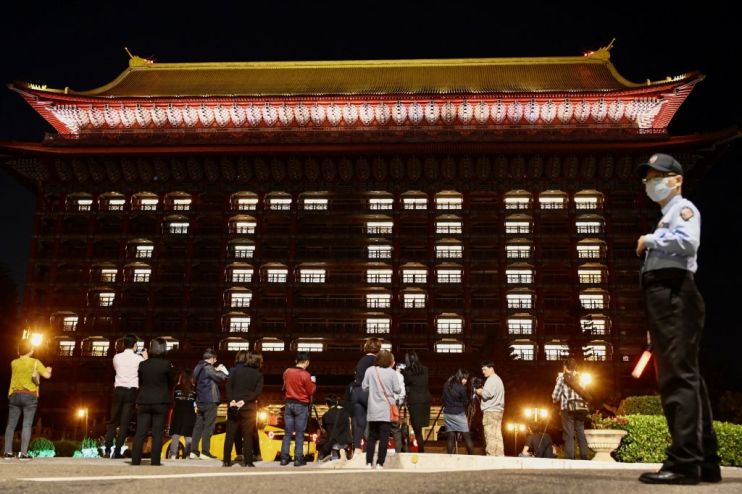Taiwan deserves a seat at the WHO table

As the UK battles the Covid-19, there are lessons that can be drawn from the experience and success that Taiwan has had in containing the pandemic.
At first glance, Taiwan would appear to be a potential hotspot. Approximately 850,000 Taiwanese currently work and live in China, with Taiwan experiencing its first Covid-19 case as early as January 21. However, as of April 30 there were only 429 confirmed cases in Taiwan with just six fatalities. Meanwhile, the UK, thousands of miles from the outbreak epicentre in contrast to the 80 miles separating Taiwan and China, has tragically had over 160,000 cases and more than 25,000 deaths.
Learning from the harsh lessons of the 2003 SARS crisis, Taiwan acted swiftly following early reports of a novel pneumonia, halting flights from China and quarantining people from infected areas since December 31 last year. Acting with transparency, the government established a Central Epidemic Command Centre (CECC) in order to contain the pandemic. Led by Taiwan’s health minister, the CECC has held press conferences almost every day to ensure the public remains informed.
Read more: Does the West realise we are in a new Cold War?
There is now an e-quarantine entry system to the country, by which passengers fill in health information via mobile phone. Individuals’ travel history is stored on a national health insurance card to alert physicians to possible cases and prevent community transmission. For those undergoing home quarantine or isolation, the government is working with telecom operators to allow GPS tracking of their locations, with fines issued to violators. Taiwan has also increased its laboratory testing capacity and retested people with higher risk who previously tested negative. Additionally, Taiwan banned the export of surgical masks on January 24, with domestic mask production also expanded.
Taiwan being one of the success stories in the fight against the virus makes its continued prevention from participation in the World Health Organization (WHO) because of pressure from China all the more objectionable.
Beijing has long used its political clout to block Taiwan from participating in almost all important international organisations and meetings, pressuring countries to follow the so-called “One China” principle and insisting that Taiwan is part of China.
The consequences of Taiwan being barred from the international health body are serious. Taiwan’s painful experience of SARS in 2003 was exacerbated by a lack of direct engagement with the WHO. In the case of Covid-19, the WHO ignored Taiwan’s warning on the risk of human-to-human transmission of the virus sent on December 31, which delayed the global response to the pandemic.
After confirming its first Covid-19 case on January 21, Taiwan immediately reported it to the WHO. However, it was merely told that the information would be forwarded to relevant departments and no follow-up information was provided. The WHO has also refused to permit Taiwanese participation in emergency committee meetings to address Covid-19, leaving Taiwan the only country left out of the meetings among those who have confirmed cases of the virus.
Dr. Michael Ryan, Executive Director of the WHO Health Emergencies Programme, stated publicly several times that the WHO has Taiwanese experts fully engaged and involved in all of its consultations and related networks and the experts are fully aware of all the developments regarding Covid-19. However, these statements are incorrect. Taiwanese experts were only invited to attend a global forum relating to Covid-19 via videoconferencing for two days in February.
In early April, Director-General of the WHO, Dr. Tedros Adhanom Ghebreyesus called for an end to politicizing the pandemic, in response to President Donald Trump’s announcement of ending US funding for the WHO. However, Taiwan’s exclusion from participating in the WHO demonstrates that the WHO itself has been politicizing global health by toeing China’s line.
Taiwan’s success in containing the pandemic can provide a model for countries struggling to cope. If a member of the WHO, Taiwan could have shared its first-hand, valuable information and pandemic prevention experience timely and directly with other members of the health organization, perhaps saving a lot of lives, including in the UK.
Taiwan, though not a member of the WHO, did not stand alone and has made efforts to join the global fight against the virus. Beginning in April, it has donated over 16 million medical face masks to countries around the world, including Britain.
Given all that the country could share with the world, it is regrettable Taiwan has long been excluded from the WHO due to pressure from China. Now more than ever it is time for the WHO to stop mixing politics with global health and welcome Taiwan into the fold, enabling it to fully share its expertise in the fight against the biggest global health threat in generations. Taiwan and its 23 million citizens deserve to enjoy the fundamental human right to health as stipulated in the WHO constitution.